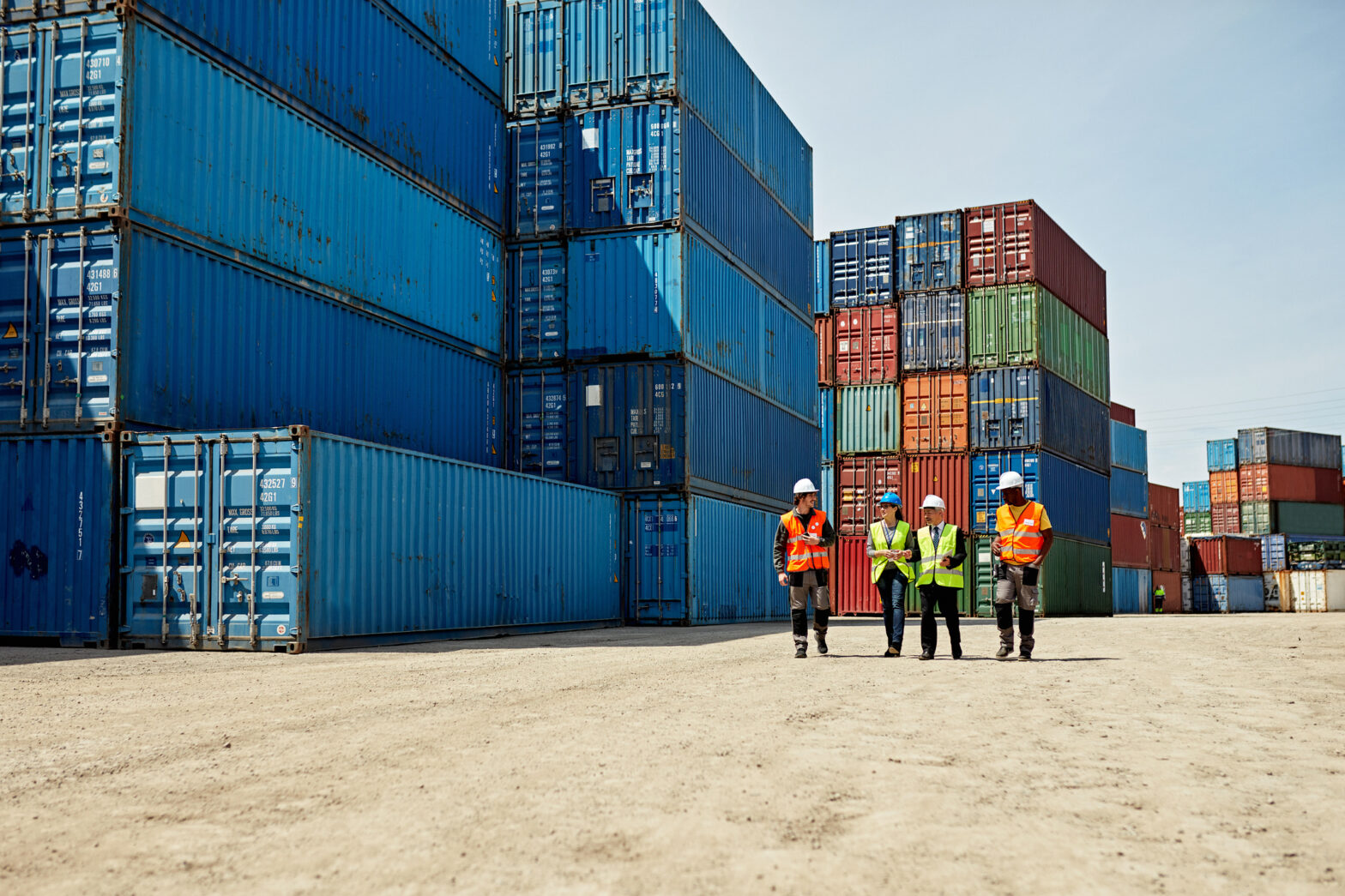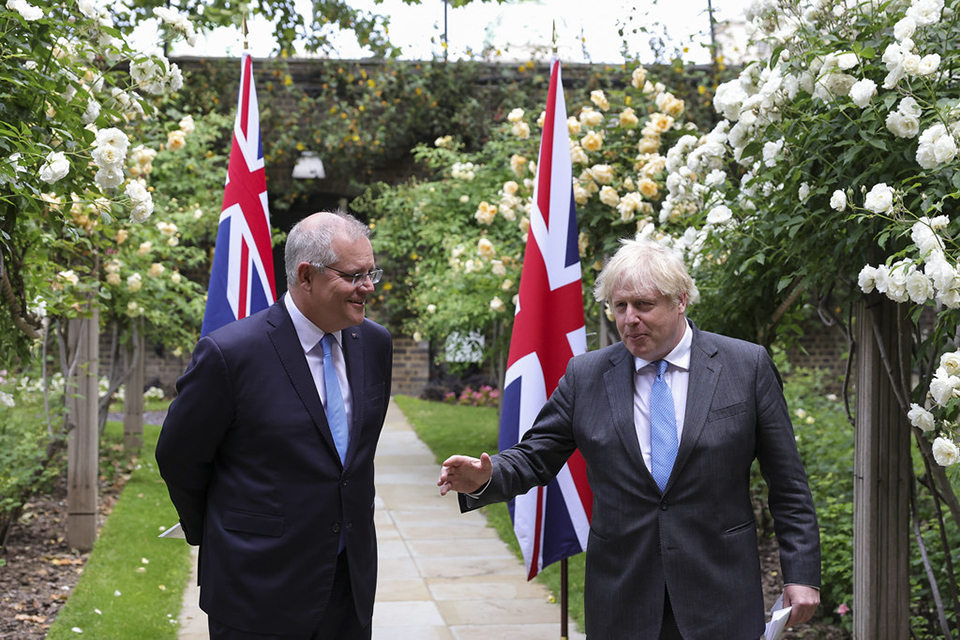If you’ve been researching your business options for importing to the UK, you’ve probably come across customs brokers offering to help make HMRC customs clearance hassle-free. Reducing the stress of importing is certainly tempting – but is it really necessary to use a customs broker, or can you deal with the authorities yourself?
This handy guide can help you decide whether using a customs broker is the best choice for your business. Read on to learn more about what a customs broker can do for you, what they’ll charge, and the pros and cons of using one for your shipment.
What is a customs broker?
A customs broker – sometimes referred to as an import broker – works to make the import and export of goods run smoothly, by facilitating the clearance of goods through customs processes.
Customs brokers are experts in international trade – it’s their job to keep abreast of the changing rules and regulations, and make sure that their clients have all the paperwork and licenses they need to import goods to the UK.
You’ll see that there are both freight forwarders and customs brokers advertising their services to UK entrepreneurs. Customs brokers typically deal with the import/export procedures, while freight forwarders are experts in logistics. However, many freight forwarding agents can also act as customs brokers, dealing with both logistics and customs requirements. If you’re thinking of using a freight forwarder to support the haulage and transport of your goods, it’s worth understanding if they offer import brokerage too.
What does a customs broker do?
A customs broker will work with importers to check that the documentation, and where necessary, licenses, are in place for the goods they are bringing into the UK. They’ll also make sure that the correct duty and taxes are paid, to reduce any delays.
Their services can include any of all of the following:
- Checking the classification and valuation of your goods, and making sure you use the right commodity codes
- Liaising with government agencies and customs authorities on your behalf
- Advising on any necessary licenses for import of restricted or hazardous goods
- Preparation and submission of documents which have to be filed to clear customs processes
- Helping arrange correct payment of import duties and VAT as necessary
How can they help?
One of the big advantages of using a customs broker is that they can help you navigate a complex and changing set of import and customs regulations. The UK customs code has seen a number of changes over the past few years – and more can be expected as Brexit approaches. This changing landscape is one reason that customs brokers are useful – if not essential – to importers.
For example, a customs broker will ensure you have all the correct paperwork in place for importing into the UK – such as your EORI number. They’ll make sure the shipment is labelled with the right commodity codes, and all the necessary documents and licenses are in place. And this will mean that your shipment clears customs into the UK without delays, and with no worries about paying over the odds in import duty, or being hit by a fine because of missing paperwork.
Tip: As a new importer, it’s important to know you may face fees or fines levied by customs authorities. But that’s not the only place you may see extra charges – and it’s good to know where you can save.
High street banks often charge high fees for international transfers, and markup the exchange rate. That means you could pay an extra margin right to the banks – without even knowing it.
There are other services, however, that are much cheaper. One is TransferWise, which can be up to eight times cheaper than UK high street banks to make an international transfer. How? They always give you the real, mid-market exchange rate – the one you’d find on Google – and charges just a small, upfront fee for every transfer. There are no hidden costs to worry about, so you can concentrate on your business.
In addition, if you need to pay international suppliers frequently you could save even more by setting up a Borderless account with TransferWise. It’s a multi-currency account that lets you keep your cash in over 40 different currencies, and switch between them instantly. Paying and getting paid with your borderless account could be cheaper and more convenient than using your high street bank.
What are the advantages of using a customs broker?
Using a specialist customs brokerage – or choosing a freight forwarder which can also act as customs broker on your behalf – can offer a number of advantages:
- Peace of mind – your customs broker will ensure your shipment is completed according to the current law. By hiring in this expertise you don’t need to learn it yourself, or employ someone in house to specialise in the area
- You can deal solely with your customs broker, rather than having to speak to several different government agencies individually
- Avoid overpaying duty or VAT – and remove the risk of underpaying and then facing fines and additional charges later
- Your goods won’t be released by UK customs until all the duty and VAT is paid, and documentation is in order. Using a customs broker can reduce delays and keep your business moving
- Many customs brokers also offer additional services, such as tracking your delivery as it moves from the point of origin
What are the disadvantages of using a customs broker?
There is no legal requirement to employ a customs broker – and if you’re an experienced importer you might decide against it. And as with everything – there are cons as well as pros, to using a customs broker. Here are a few downsides:
- In the UK, customs brokers don’t have the same licensing process as they do in the USA, for example. This means that you’ll have to closely check the credentials of your chosen provider and make sure they can deliver everything they say they can
- Using a customs broker can add costs, compared to dealing with customs clearance yourself
- Once you employ a customs broker you have less control over your shipment – you need to trust the agent you’ve chosen to act on your behalf
How much does it cost to use a customs broker?
Each customs broker will offer slightly different services, and their charges can therefore vary widely. If you’re using a freight forwarder, which will also act as your customs broker, then you should be able to see the customs element of their service detailed in their itemised quote and contract. You can then compare their costs to other organisations.
You’ll find that most customs brokers prefer to offer a tailored quote as their fee will depend on the products you’re importing, their value and point of origin. For example, if your goods need licensing then this could cause additional work for the broker, and they’ll add a fee for this. You can expect your itemised quote to cover items such as the following:
- Customs clearance charge – this is an admin cost, usually a flat fee
- Airline handling – assessed by delivery weight, at least £45, or any port authority fees levied for sea freight
- Airline bond transfer fee – assessed by delivery weight, at least £15
- Airline or port storage if this is needed during customs clearance
- For sea freight consolidated shipments – expect to see third party document, handover and other fees
- Government agency fees for inspections
- Bank transfer fees and agency fees, which could hit £65 or more, if the broker pays HMRC on your behalf
- Onward delivery costs if needed
There are some customs brokers which advertise a flat upfront fee – which can be as low as £29. While these offers might be worth considering, you’ll also do well to be wary of small print or added extras which can soon add up to a significantly higher fee. Make sure you’re very clear on what you can expect from your customs broker before you sign on the dotted line.
Is a customs broker right for me?
If you’re relatively new to importing, then having some support to navigate the customs processes is certainly helpful. Not only does it reduce the stress of importing, it also means that you don’t need to invest time and energy in learning about customs regulations yourself, or employ someone else in house to do so.
You might find that a standalone customs broker is what you need – or you might choose to use a freight forwarding agency which can also offer support with import brokerage. If you find that you’re importing high volumes of products, it might become worth learning more about the customs processes required, and bringing this in house. However, in the early days, many importers prefer to use an outsourced provider for peace of mind.
How to find a customs broker
If you’re using a freight forwarder to arrange the transport logistics of your delivery then it is worth asking if they offer customs and import brokerage too. If they do, this could be a good choice, as it means you’re only dealing with one outsourced provider rather than several.
Alternatively, you can find a customs broker fairly easily with a quick Google search. Not all brokers cover all points of entry – for example, some are more focused on air freight, rather than having a presence at sea ports. Narrow your search by location for better accuracy.
Because the services on offer are tailored to your specific delivery, you’ll need to give some details about what you’re importing to generate a quote. Get a number of itemised quotes for comparison, and don’t forget to check the credentials of any broker you are considering. Look for client reviews, and talk to them yourself if possible to make sure you trust their abilities and experience.
Using a customs broker to help clear your delivery through UK customs can make life much easier. You’ll pay for the service, but it can reduce the risks involved in importing, and mean that you get your goods more quickly. Most importantly, it’ll remove a distraction, and free you up to focus on your business. Often, that’s money well spent.
Further Resources
- Customs agents list from HMRC – Here you can find a customs agent or fast parcel operator to help you with import and export declarations.
- Register of Customs Brokers – A list provided by the UK Customs Academy
- Institute of Export & International Trade – Offers useful courses for exporters – e.g. ‘How to use the Customs Declaration Service’ or ‘Customs procedures and documentation’ etc. They also manage a website called: Open to Export which has a free to use online planning tool for small businesses wishing to trade internationally.
- NI Business Info Import and Export Procedures – Support for businesses for customs processes when moving goods into and out of Northern Ireland.





Thanks , very helpfull post
Thank you, well explained.
Hi I looking for broker but no one wont clear food from Poland Do you know any one who can do it Pls
Do I need a customs broker if I’m not a business? I ordered some furniture from Canada before Brexit and its being shipped via Bulgaria. I’ve been contacted by a company asking if I want them to clear customs on my behalf or if I plan on doing it myself or through another party. I’m completely clueless. I’ve already been told to register for an EORI number which I’ve done. Any advice would be greatly received.
We clear food from EU
Still require clearance. Please get in touch as I don’t want you paying over the odds
If I am sending personal effects to myself with a ToR do I still need a customs broker? Can I also pick up my belongings myself or do I need a freight forwarder? Thank you.